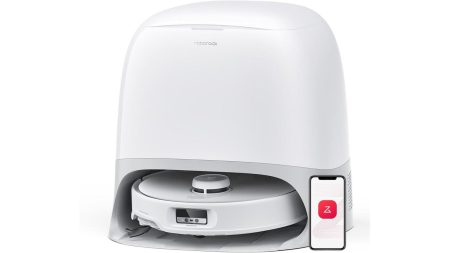InnovationRx is your weekly digest of healthcare news. To get it in your inbox, subscribe here.
Oracle joined the AI medical scribe race this week, a late entrant trailing behind Microsoft’s Nuance and a dozen venture-backed startups. The company says its new tool–which will automatically transcribe patient conversations and input them into electronic health records–is generally available for outpatient clinics using the electronic health record formerly known as Cerner, which Oracle acquired for $28 billion in 2022. Oracle executive vice president Mike Sicilia told Forbes that for doctors, the tool means “50% less screens,” allowing them to focus on patients.
All of the companies operating in the space have made similar promises around reducing clicks and improving morale by saving doctors hours of typing. “I don’t want to talk about going from ten clicks to seven clicks,” Sicilia said. “I want to talk about going from ten clicks to zero clicks.” Oracle’s solution records a doctor-patient conversation and generates a note “in minutes,” according to a press release, along with helping draft referrals, teeing up prescriptions and scheduling labs.
It’s still early days and one of the biggest unknowns is whether bespoke or off-the-shelf large language models will ultimately win. And, if the latter, will open source or proprietary commercial models work best? Sicilia said Oracle has so far tried OpenAI’s GPT-4, Meta’s LLaMA 2 and Cohere’s models. “I don’t think locking into any particular model at this point would be wise for us, given that they continue to change drastically,” he said.
These models are being trained on the entirety of the open internet, so “they’ve pretty much read it all,” Sicilia said. Where he thinks Oracle can stand out is by helping its customers use their own data to further tweak a model’s performance. Oracle won’t tell them which one to use, but will provide data around accuracy and performance. “We have to be very careful as a technology provider that we’re not playing doctor,” he said.
Dangerous New Mpox Virus Sparks Global Outbreak Fears
A dangerous new strain of mpox that’s particularly lethal in children is spreading in the Democratic Republic of Congo and could spread internationally, health experts and the World Health Organization have warned, sparking fears another global outbreak looms after the virus burst onto the world stage two years ago.
Read more here.
Pipeline & Deal Updates
Cardiovascular Disease: Alnylam Pharma released phase 3 studies of its drug candidate vutrisiran, which showed statistically significant results for patients with a rare heart condition.
AI Drug Development: Formation Bio, which is building AI-powered platforms to accelerate drug discovery and development, announced it raised a $372 million series D round led by Andreessen Horowitz.
mRNA Gene Therapy: Exsilio, a company headed by Tal Zaks, former chief medical officer of Moderna, emerged from stealth with a $82 million seriea A round. The company aims to develop ways to use mRNA for gene-editing therapies.
AI Protein Modeling: EvolutionaryScale, cofounded by ex-members of Meta’s protein folding team, announced the release of its first model as well as $142 million in seed funding.
Prenatal Diagnostics: BillionToOne, which has developed molecular prenatal diagnostics for common genetic diseases, announced it has raised a $130 series D round led by Premji Invest.
Weight Loss: Virtual obesity care startup Form Health, which has paired tens of thousands of patients with doctors, dieticians and, when appropriate, GLP-1 medications, has raised a $38 million Series B led by Sound Ventures.
Novo Nordisk Invests $4.1 Billion For New US Facility—Boosting Ozempic Production
Novo Nordisk will invest $4.1 billion to develop a new manufacturing facility in the U.S., which will be used to boost production for the company’s weight loss and diabetes drugs Wegovy and Ozempic, the Danish firm said Monday.The funds will be used to build a 1.4 million square foot facility in Clayton, North Carolina, where the company’s medicines will be filled into injector pens before they are shipped to customers. It’s estimated to be completed between 2027 and 2029.
Read more here.
Other Healthcare News
People who use GLP-1 drugs like Ozempic or Wegovy may experience bone density loss, a new study found, but regular exercise mostly prevents it. Experts warn safety measures like masks, vaccines and safety goggles will be needed if avian flu begins spreading among people.
The FDA allowed the first menthol-flavored vapes to enter the market on Friday.Novo Nordisk confirmed its popular weight loss drug Wegovy had been approved in China, but the company told Forbes it will only launch there once it could guarantee supplies for those already taking it as shortages plague the market.
The CDC warned doctors in the U.S. to prepare for a potential outbreak of dengue, a disease spread by mosquitoes that has surged worldwide since the start of the year.
Across Forbes
Here Are Trump’s 10 Biggest Billionaire Donors
Why Hollywood Is Bearish On The Future Of Television
ByteDance Doubles Down On TikTok Shop, Despite Threat Of A U.S. Ban
What Else We are Reading
Closing of Rural Hospitals Leaves Towns With Unhealthy Real Estate (KFF Health News)
Does Ozempic boost fertility? What the science says (Nature)
Three months into bird flu outbreak in U.S. dairy cows, experts see deep-rooted problems in response (STAT)
Read the full article here






